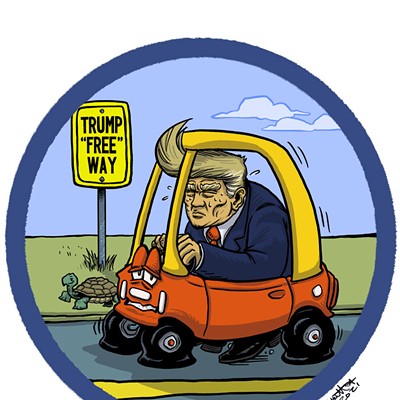For the last 30 days, the car has served as 23-year-old Antwone Taulton’s home.
But Taulton is not one of the hundreds of homeless people in downtown Oklahoma City. He is a man on a mission.
In February, Taulton, a student at Baylor University working on his master’s of divinity, took the semester off and began to live the life of a homeless person in order to film a documentary on the plight of the homeless in Oklahoma City.
Taulton, who has family in the city and once attended the University of Central Oklahoma, said he has always been interested in homelessness, and in order to show the challenges homeless people face, as well as problems in efforts to help the homeless, he decided to film an independent documentary.
Filming for the project begins in April, Taulton said, and he hopes to have the documentary air on local station KSBI-TV by May.
Taulton said living with the Oklahoma City’s homeless population for the past month has given him a firstperson perspective of what sometimes is a spiral of hopelessness.
In his observations, Taulton said, the longer a person lives homeless, the more likely they are to resign themselves to their fate and reject help. But for the many who do want out, little is provided in way of a support structure to get them on their feet, he said.
“They’re good people, they’re kindhearted people, but you can’t help all of them and not all of them want to be helped. Some of them have adapted to this way of life. That comes from being out here so long and the mental abuse they have to go through,” Taulton said. “If you catch them at the beginning stages, you can get them out of here.”
above Antwone Taulton and “Uncle” Billy Ray left Two transients sit across from the City Rescue Mission.
Taulton said he has had two runins with the police, and once, before it was revealed that he was working on the documentary, an officer told him, “It’s people like you who make our jobs hard.” Usually after people found out he was not homeless, they treated him with more respect, Taulton said.
“Police need to treat them like human beings, society needs to, as well,” Taulton said. “Especially the people in power, they need to do something about it.”
Billy Ray, known as “Uncle” to his friends, said he has been able to find a home, but is barely getting by and often goes to support groups for assistance.
Ray and other homeless people said they are often dismissed or treated rudely, and that more people are on the streets because of the recession.
“I realize there’s a lot of people out here who don’t have to be homeless, but there’s a lot of people out here that don’t have any other choice,” Ray said. “I see more people now than I did two or three years ago. There’s way more people on the street.”
William Lane said he suffers from epilepsy, and while he was kicked out of one shelter for a breach of protocol involving his medication, other shelters would not take him.
“They don’t want the liability,” Lane said. “I kept having seizures.”
Now he sleeps on the streets, Lane said.
“I’ve had to live underneath 18-wheeler trailers before,” Lane said. “What do you do (when they take off)? Roll out from under them.”
Taulton said he hopes his documentary incites the city to take action on the homeless situation, as it has with other issues.
“When you pass a $777 million MAPS bill and are building a $750 million 50-story building downtown, but you have homelessness a mile away, there’s something not right with that,” Taulton said. “It’s an issue. It has to be addressed. If you passed a tax increase to remodel the Ford Center, how about you do something for the homeless? Raise a tax to build a homeless shelter. I’m sure it wouldn’t pass, but you want the Oklahoma City Thunder to have a nice place to play. Let’s get our priorities straight.”
Taulton said he already has been in contact with business groups, nonprofit and church groups, and city and state officials about the issue, and hopes the documentary will allow Oklahoma City residents to get insight into an often ignored world.
“Someone had to help the homeless. I see them every day. You start to see that same homeless person constantly and you know there’s no one there to help them,” Taulton said. “Somebody has to take the initiative and speak up for them. They’re treated as if they’re not people.”











